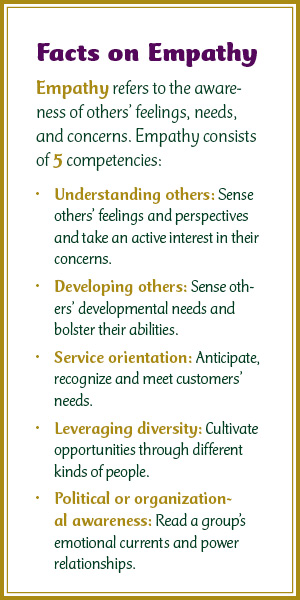
And other lessons from an untimely death.
I think I have a lot in common with 391,833 other Facebook users. I don’t want anyone to miss the essence of Sheryl Sandberg’s message from June 3 sharing her feelings and realizations from the 30-day religious mourning period following her husband’s unexpected death.
My thoughts keep going back to her Facebook post on losing her husband, Silicon Valley entrepreneur Dave Goldberg. What she shared can make us all stronger, more emotionally intelligent and better parents, children and friends.
She now understands the one-line prayer, “Let me not die while I am still alive,” shared by her childhood friend, now a rabbi.
She understands that “when tragedy occurs, it presents a choice. You can give in to the void, the emptiness that fills your heart, your lungs, constricts your ability to think or even breathe. Or you can try to find meaning. These past thirty days, I have spent many of my moments lost in that void. And I know that many future moments will be consumed by the vast emptiness as well. But when I can, I want to choose life and meaning.”
And empathy—Sheryl shines a new light on the power of empathy. In the past, she would have thought exhibiting empathy would look something like trying to reassure someone things would get better or—as many of us do—to put a silver lining on it, “Well, at least you had a great marriage for 11 years,” or “Thank goodness you have your children.”
Sheryl says it’s all about truth. “Real empathy is sometimes not insisting that it will be okay but acknowledging that it is not. When people say to me, ‘You and your children will find happiness again,’ my heart tells me, yes, I believe that, but I know I will never feel pure joy again. Those who have said, ‘You will find a new normal, but it will never be as good’ comfort me more because they know and speak the truth. Even a simple ‘How are you?’—almost always asked with the best of intentions—is better replaced with ‘How are you today?’ When I am asked ‘How are you?’ I stop myself from shouting, ‘My husband died a month ago, how do you think I am?’ When I hear ‘How are you today?’ I realize the person knows that the best I can do right now is to get through each day.”
She also learned that resilience can be learned. Her friend Adam M. Grant taught her about the three components that create resilience: “Personalization—realizing it is not my fault. He told me to ban the word ‘sorry.’ To tell myself over and over, This is not my fault. Permanence—remembering that I won’t feel like this forever. This will get better. Pervasiveness—this does not have to affect every area of my life; the ability to compartmentalize is healthy.”
Thanks for sharing, Sheryl. We’ve looked up to you as a highly successful female executive and bestselling author. Your book, Lean In, inspired us women to get out there and claim our place in the world of business. Your recent Facebook post inspires us and teaches us how important it is to choose meaning and life, impart empathy and learn to be resilient. How are you today?
Links to other articles and blogs on Sheryl’s post can be found at The New York Times.


 If you are game to play along, here’s your assignment: choose a person and situation, and then experience what it is like to fully understand that person’s feelings, needs and how they are responding or reacting to a situation. Observe and sincerely attempt to understand their perspectives without judgment. This will require being present to the person, reflecting and practicing active and empathetic listening. Inquire how they are feeling and see how close you are to understanding what they are experiencing during the situation. Notice how this makes you feel and how the person responds to you.
If you are game to play along, here’s your assignment: choose a person and situation, and then experience what it is like to fully understand that person’s feelings, needs and how they are responding or reacting to a situation. Observe and sincerely attempt to understand their perspectives without judgment. This will require being present to the person, reflecting and practicing active and empathetic listening. Inquire how they are feeling and see how close you are to understanding what they are experiencing during the situation. Notice how this makes you feel and how the person responds to you.


